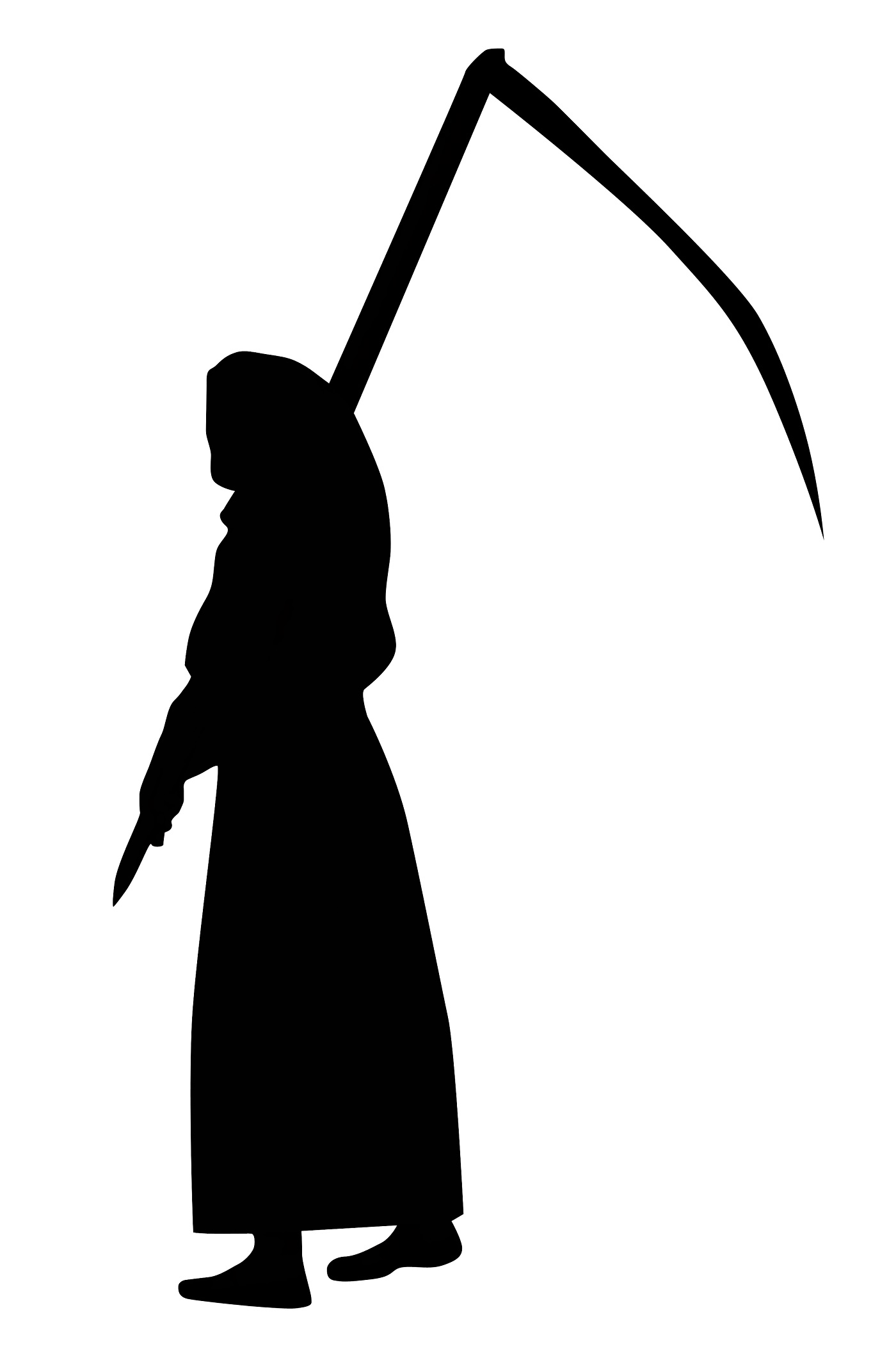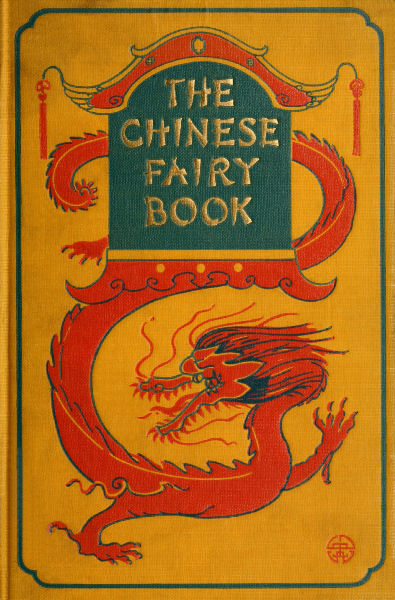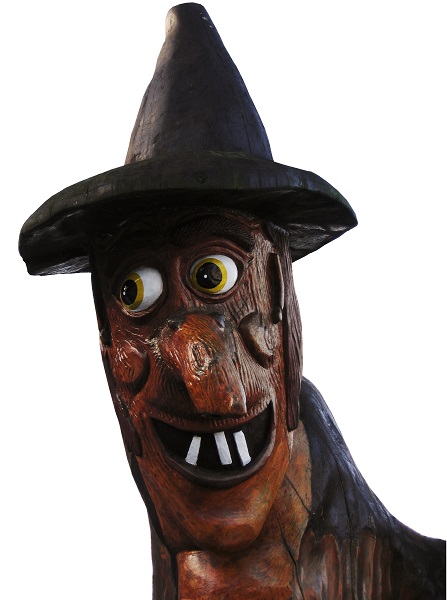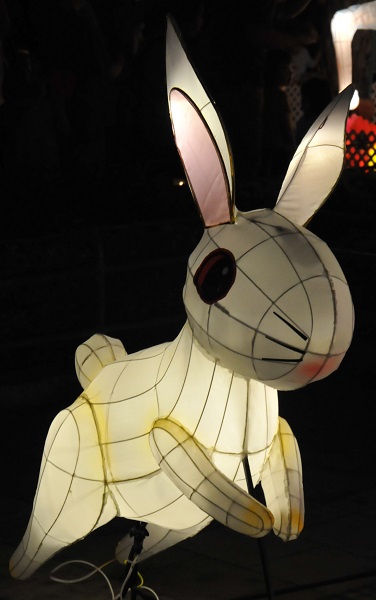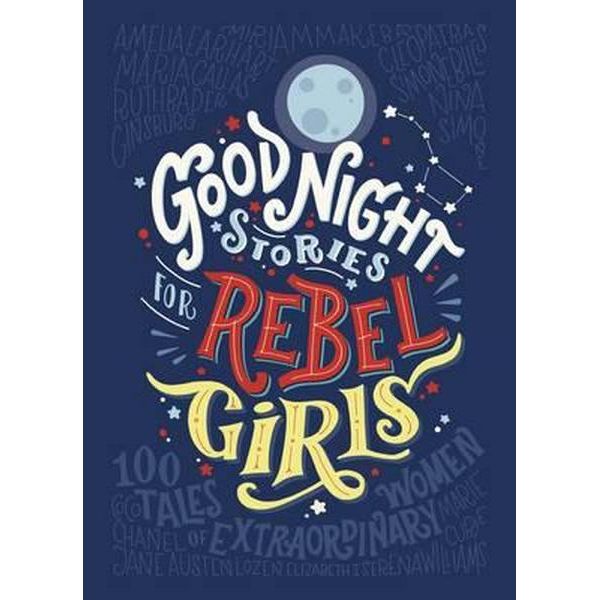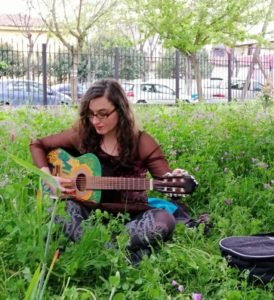The Three Golden Hairs of Grandfather Allknow (Tri zlaté vlasy Deda-Vsheveda) (Sixty Folk-Tales from Exclusively Slavonic Sources) Translated by Albert Henry Wratislaw
There was once upon a time a king who delighted in hunting wild animals in forests. One day he chased a stag to a great distance and lost his way. He was all alone; night came on, and the king was only too glad to find a cottage in a clearing. A charcoal-burner lived there. The king asked him whether he would guide him out of the forest to the road, promising to pay him well for it. ‘I would gladly go with you,’ said the charcoal-burner, ‘but, you see, my wife is expecting; I cannot go away. And whither would you go at this time of night? Lie down on some hay on the garret floor, and to-morrow morning I will be your guide.’ Soon afterwards a baby boy was born to the charcoal-burner. The king was lying on the floor and couldn’t sleep. At midnight he observed a kind of light in the keeping-room below. He peeped through a chink in the boarding and saw the charcoal-burner asleep, his wife lying in a dead faint, and three old hags, all in white, standing by the baby, each with a lighted taper in her hand. The first said: ‘My gift to this boy is, that he shall come into great dangers.’ The second said: ‘My gift to him is, that he shall escape from them all and live long.’ And the third said: ‘And I give him to wife the baby daughter who has this day been born to that king who is lying upstairs on the hay.’ Thereupon the hags put out their tapers, and all was still again. They were the Fates.
The king felt as if a sword had been thrust into his breast. He didn’t sleep till morning, thinking over what to do, and how to do it, to prevent that coming to pass which he had heard. When day dawned the child began to cry. The charcoal-burner got up and saw that his wife had gone to sleep for ever. ‘Oh, my poor little orphan!’ whimpered he; ‘what shall I do with you now?’ ‘Give me the baby,’ said the king; ‘I’ll take care that it shall be well with it, and will give you so much money that you needn’t burn charcoal as long as you live.’ The charcoal-burner was delighted at this, and the king promised to send for the baby. When he arrived at his palace they told him, with great joy, that a beautiful baby-daughter had been born to him on such and such a night. It was the very night on which he saw the three Fates. The king frowned, called one of his servants, and told him: ‘Go to such a place in the forest; a charcoal-burner lives there in a cottage. Give him this money, and he will give you a little child. Take the child and drown it on your way back. If you don’t drown it, you shall drink water yourself.’ The servant went, took the baby and put it into a basket, and when he came to a narrow foot-bridge, under which flowed a deep and broad river, he threw the basket and all into the water. ‘Good-night, uninvited son-in-law!’ said the king, when the servant told him what he had done.
The king thought that the baby was drowned, but it wasn’t. It floated in the water in the basket as if it had been its cradle, and slept as if the river were singing to it, till it floated down to a fisherman’s cottage. The fisherman was sitting by the bank mending his net. He saw something floating down the river, jumped into his boat, and went to catch it, and out of the water he drew the baby in the basket. He carried it to his wife, and said: ‘You’ve always wanted a little son, and here you have one. The water has brought him to us.’ The fisherman’s wife was delighted, and brought up the child as her own. They named him ‘Floatling’ (Plaváczek), because he had floated to them on the water.
The river flowed on and years passed on, and from a boy he became a handsome youth, the like of whom was not to be found far and wide. One day in the summer it came to pass that the king rode that way all alone. It was hot, and he was thirsty, and beckoned to the fisherman to give him a little fresh water. When Floatling brought it to him, the king looked at him with astonishment. ‘You’ve a fine lad, fisherman!’ said he; ‘is he your son?’ ‘He is and he isn’t,’ replied the fisherman; ‘just twenty years ago he floated, as a little baby, down the river in a basket, and we brought him up.’ A mist came before the king’s eyes; he became as pale as a whitewashed wall, perceiving that it was the child he had ordered to be drowned. But he soon recollected himself, sprang from his horse, and said: ‘I want a messenger to my palace, and have nobody with me: can this youth go thither for me?’ ‘Your majesty has but to command and the lad will go,’ said the fisherman. The king sat down and wrote a letter to his queen: ‘Cause this young man whom I send you to be run through with a sword at once; he is a dangerous enemy of mine. Let it be done before I return. Such is my will.’ He then folded the letter, fastened and sealed it with his signet.
Floatling started at once with the letter. He had to go through a great forest, but missed the road and lost his way. He went from thicket to thicket till it began to grow dark. Then he met an old hag, who said to him: ‘Whither are you going, Floatling?’ ‘I am going with a letter to the king’s palace, and have lost my way. Can’t you tell me, mother, how to get into the right road?’ ‘Anyhow, you won’t get there to-day,’ said the hag; ‘it’s dark. Stay the night with me. You won’t be with a stranger. I am your godmother.’ The young man allowed himself to be persuaded, and they hadn’t gone many paces when they saw before them a pretty little house, just as if it had grown all at once out of the ground. In the night, when the lad was asleep, the hag took the letter out of his pocket and put another in its place, in which it was written thus: ‘Cause this young man whom I send you to be married to our daughter at once; he is my destined son-in-law. Let it be done before I return. Such is my will.’
When the queen read the letter, she immediately ordered arrangements to be made for the wedding, and neither she nor the young princess could gaze enough at the bridegroom, so delighted were they with him; and Floatling was similarly delighted with his royal bride. Some days after, the king came home, and when he found what had happened, he was violently enraged at his queen for what she had done. ‘Anyhow, you ordered me yourself to have him married to our daughter before you returned,’ answered the queen, and gave him the letter. The king took the letter and looked it through—writing, seal, paper, everything was his own. He had his son-in-law called, and questioned him about what had happened on his way to the palace.
Floatling related how he had started and had lost his way in the forest, and stayed the night with his old godmother. ‘What did she look like?’ ‘So and so.’ The king perceived from his statement that it was the same person that had, twenty years before, assigned his daughter to the charcoal-burner’s son. He thought and thought, and then he said: ‘What’s done can’t be altered; still, you can’t be my son-in-law for nothing. If you want to have my daughter, you must bring me for a dowry three golden hairs of Grandfather Allknow.’ He thought to himself that he should thus be quit of his distasteful son-in-law.
Floatling took leave of his bride and went—which way, and whither? I don’t know; but, as a Fate was his godmother, it was easy for him to find the right road. He went far and wide, over hills and dales, over fords and rivers, till he came to a black sea. There he saw a boat, and in it a ferryman. ‘God bless you, old ferryman!’ ‘God grant it, young pilgrim! Whither are you travelling?’ ‘To Grandfather Allknow, for three golden hairs.’ ‘Ho, ho! I have long been waiting for such a messenger. For twenty years I’ve been ferrying here, and nobody’s come to set me free. If you promise me to ask Grandfather Allknow when the end of my work will be, I will ferry you over.’ Floatling promised, and the ferryman ferried him across.
After this he came to a great city, but it was decayed and sad. In front of the city he met an old man, who had a staff in his hand, and could scarcely crawl. ‘God bless you, aged grandfather!’ ‘God grant it, handsome youth! Whither are you going?’ ‘To Grandfather Allknow, for three golden hairs.’ ‘Ah! ah! we’ve long been waiting for some such messenger; I must at once conduct you to our lord the king.’ When they got there the king said: ‘I hear that you are going on an errand to Grandfather Allknow. We had an apple-tree here that bore youth-producing apples. If anybody ate one, though he were on the brink of the grave, he got young again, and became like a young man. But for the last twenty years our apple-tree has produced no fruit. If you promise me to ask Grandfather Allknow whether there is any help for us, I will requite you royally.’ Floatling promised, and the king dismissed him graciously.
After that he came again to another great city, which was half ruined. Not far from the city a son was burying his deceased father, and tears, like peas, were rolling down his cheek. ‘God bless you, mournful grave-digger!’ said Floatling. ‘God grant it, good pilgrim! Whither are you going?’ ‘I am going to Grandfather Allknow, for three golden hairs.’ ‘To Grandfather Allknow? It’s a pity you didn’t come sooner! But our king has long been waiting for some such messenger; I must conduct you to him.’ When they got there, the king said: ‘I hear that you are going on an errand to Grandfather Allknow. We had a well here, out of which sprang living water; if anybody drank it, even were he at the point of death, he would get well at once; nay, were he already a corpse, if this water were sprinkled upon him, he would immediately rise up and walk. But for the last twenty years the water has ceased to flow. If you promise me to ask Grandfather Allknow whether there is any help for us, I will give you a royal reward.’ Floatling promised, and the king dismissed him graciously.
After this he went far and wide through a black forest, and in the midst of that forest espied a large green meadow, full of beautiful flowers, and in it a golden palace. This was Grandfather Allknow’s palace; it glittered as if on fire. Floatling went into the palace, but found nobody there but an old hag sitting and spinning in a corner. ‘Welcome, Floatling!’ said she; ‘I am delighted to see you again.’ It was his godmother, at whose house he had spent the night when he was carrying the letter. ‘What has brought you here?’ ‘The king would not allow me to be his son-in-law for nothing, so he sent me for three golden hairs of Grandfather Allknow.’ The hag smiled, and said: ‘Grandfather Allknow is my son, the bright Sun; in the morning he is a little lad, at noon a grown man, and in the evening an old grandfather. I will provide you with the three golden hairs from his golden head, that I too mayn’t be your godmother for nothing. But, my boy! you can’t remain as you are. My son is certainly a good soul, but when he comes home hungry in the evening, it might easily happen that he might roast and eat you for his supper. Yonder is an empty tub; I will cover you over with it.’ Floatling begged her also to question Grandfather Allknow about the three things concerning which he had promised on the road to bring answers. ‘I will,’ said the hag, ‘and do you give heed to what he says.’
All at once a wind arose outside and in flew the Sun, an old grandfather with a golden head, by the west window into the room. ‘A smell, a smell of human flesh!’ says he; ‘have you anybody here, mother?’ ‘Star of the day! whom could I have here without your seeing him? But so it is; you’re all day long flying over God’s world, and your nose is filled with the scent of human flesh; so it’s no wonder that you still smell it when you come home in the evening.’ The old man said nothing in reply, and sat down to his supper.
After supper he laid his golden head on the hag’s lap and began to slumber. As soon as she saw that he was sound asleep, she pulled out a golden hair and threw it on the ground. It rang like a harp-string. ‘What do you want, mother?’ said the old man. ‘Nothing, sonny, nothing! I was asleep, and had a marvellous dream.’ ‘What did you dream about?’ ‘I dreamt about a city, where they had a spring of living water; when anybody was ill and drank of it, he got well again; and if he died and was sprinkled with this water, he came to life again. But for the last twenty years the water has ceased to flow; is there any help that it may flow again?’ ‘Quite easy; there’s a toad sitting on the spring in the well that won’t let the water flow. Let them kill the toad and clean out the well; the water will flow as before.’ When the old man fell asleep again, the hag pulled out a second golden hair and threw it on the ground. ‘What ails you again, mother?’ ‘Nothing, sonny, nothing; I was asleep, and again had a marvellous dream. I dreamt of a city where they had an apple-tree which bore youth-restoring apples; when anybody grew old and ate one he became young again. But for the last twenty years the apple-tree has borne no fruit; is there any help?’ ‘Quite easy; under the tree there lies a snake that exhausts its powers; let them kill the snake and transplant the apple-tree; it will bear fruit as before.’ The old man then fell asleep again, and the hag pulled out a third golden hair. ‘Why won’t you let me sleep, mother?’ said the old man crossly, and wanted to get up. ‘Lie still, sonny, lie still! Don’t be angry, I didn’t want to wake you. But a heavy sleep fell upon me, and I had another marvellous dream. I dreamt of a ferryman on a black sea; for twenty years he has been ferrying across it, and no one has come to set him free. When will his work have an end?’ ‘He’s the son of a stupid mother. Let him give the oar into another person’s hand and jump ashore himself; the other will be ferryman in his stead. But let me be quiet now; I must get up early to-morrow and go to dry the tears which the king’s daughter sheds every night for her husband, the charcoal-burner’s son, whom the king has sent for three golden hairs of mine.’
In the morning a wind again arose outside, and on the lap of its old mother awoke, instead of the old man, a beautiful golden-haired child, the divine Sun, who bade farewell to his mother and flew out by the east window. The hag turned up the tub and said to Floatling: ‘There are the three golden hairs for you, and you also know what Grandfather Allknow has answered to those three things. Go; and good-bye! You will see me no more; there is no need of it.’ Floatling thanked the hag gratefully, and departed.
When he came to the first city, the king asked him what news he brought him. ‘Good news,’ said Floatling. ‘Have the well cleaned out, and kill the toad which sits on the spring, and the water will flow again as aforetime.’ The king had this done without delay, and when he saw the water bubbling up with a full stream, he presented Floatling with twelve horses white as swans, and on them as much gold and silver as they could carry.
When he came to the second city the king asked him again what news he brought. ‘Good news!’ said Floatling. ‘Have the apple-tree dug up; you will find a snake under the roots; kill it; then plant the apple-tree again, and it will bear fruit as aforetime.’ The king had this done at once, and during the night the apple-tree was clothed with bloom, just as if it had been bestrewn with roses. The king was delighted, and presented Floatling with twelve horses as black as ravens, and on them as much riches as they could carry.
Floatling travelled on, and when he came to the black sea, the ferryman asked him whether he had learnt when he would be liberated. ‘I have,’ said Floatling. ‘But ferry me over first, and then I will tell you.’ The ferryman objected, but when he saw that there was nothing else to be done, he ferried him over with his four-and-twenty horses. ‘Before you ferry anybody over again,’ said Floatling, ‘put the oar into his hand and jump ashore, and he will be ferryman in your stead.’
The king didn’t believe his eyes when Floatling brought him the three golden hairs of Grandfather Allknow; and his daughter wept, not from sorrow, but from joy at his return. ‘But where did you get these beautiful horses and this great wealth?’ asked the king. ‘I earned it,’ said Floatling; and related how he had helped one king again to the youth-restoring apples, which make young people out of old ones; and another to the living water, which makes sick people well and dead people living. ‘Youth-restoring apples! living water!’ repeated the king quietly to himself. ‘If I ate one I should become young again; and if I died I should be restored to life by that water.’ Without delay he started on the road for the youth-restoring apples and the living water—and hasn’t returned yet.
Thus the charcoal-burner’s son became the king’s son-in-law, as the Fate decreed; and as for the king, maybe he is still ferrying across the black sea.
This story is a variant of Grimm’s ‘Giant with the Three Golden Hairs.’ But, whereas in Grimm there is nothing to indicate who the giant is, or whether he has three golden hairs and three only, in the Bohemian tale it is plain that ‘Grandfather Allknow’ is the Sun, and that the three golden hairs are three sunbeams.

